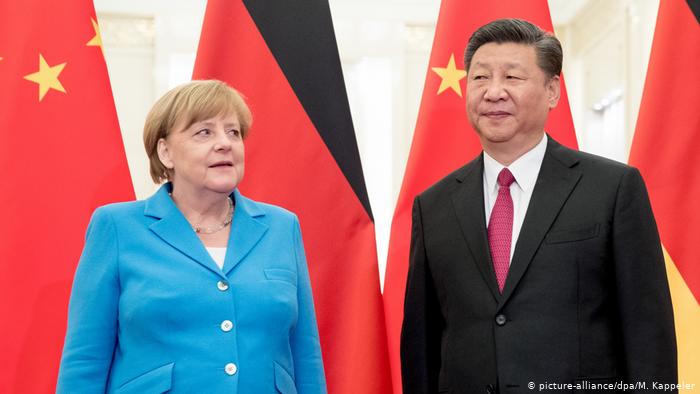The thing about ‘past’ is that it comes back to haunt you when you really want to get rid of it. German Chancellor Angela Merkel just realised this the hard way. The incumbent German Chancellor will step down from the top post after German Federal polls next year. She, therefore, wants to go down in history books as someone who stood up bravely for Germany and the entire EU for that matter. Therefore, a pro-China Merkel administration has suddenly started raising contentious issues against Beijing.
Germany has been speaking about human rights violations by China in Xinjiang and Tibet or Beijing’s political interference in Hong Kong. It even released an India-centric Indo-Pacific policy. Merkel was carefully crafting an anti-China image at the dawn of her long career. Also, she doesn’t want to land her successors in a position in which they are left explaining Berlin’s dubious China policy. But a latest Axios report about a cover-up by the Merkel administration has dampened her ambitions of an image make-over.
According to Axios, a high-ranking German official suppressed a crucial intelligence report in 2018 about the growing Chinese influence in Germany. Interestingly, the intelligence report was suppressed due to fears that it could hurt Sino-German business ties. It is directly inculpating for the Merkel administration, which was only till very recently insisting on shaping its China policy based on business interests, and ignoring Chinese human rights violations.
Worse still, Axios has also reported that Merkel, too, had seen the report, and yet the report got suppressed. And apart from suppression also, the report is rather inculpatory in itself. According to two former American intelligence officials, the 2018 report examined the Chinese government’s attempt to influence all levels of the German government, society and business.
The intelligence report is said to have been particularly harsh on the close ties between German business and the Chinese government. And then intervention by a high-ranking German official to avoid wide dissemination of the highly sensitive report really connects the dots.
Meanwhile, the German government is having a horrid time deflecting the intense backlash that it is facing following the explosive Axios report. The Federal Intelligence Service, Germany’s external intelligence agency, did not respond to a request for comment on the 2018 report. Axios has quoted a German Federal government official as saying, “As a matter of principle, the German government does not comment on matters concerning intelligence findings or activities of the intelligence services.”
But the shoddy cover-up of the 2018 intelligence report and an even shoddier defence that the German government is raising now doesn’t help Merkel avoid the massive embarrassment that she is bound to face now. Even more importantly, the latest exposé hurts Merkel’s desperate bid to project herself as someone who doesn’t shy away from standing up to China.
Today, Merkel administration has been making cosmetic changes to its pro-China bias policy. But as Merkel’s doubtful past comes back to haunt her, Berlin’s latest attempts to take digs at China fade into irrelevance. Now, the spotlight turns back towards Merkel’s attempts to downplay Chinese human rights violations to advance its business interests.
Noah Barkin, an expert on Europe-China relations at the Rhodium Group said, “There has been a lot of self-censorship in Germany with regard to China.” Barkin added, “Merkel’s approach has been to criticize China behind closed doors, rather than in public.”
And if we may add, even Germany’s top officials didn’t hide their propensity to downplay Chinese hawkishness to ensure that there is no strain in Sino-German business ties. Germany’s Economy and Energy Minister Peter Altmaier, in fact, went to great lengths in defending Germany’s close trade ties with Beijing. He said, “It has always been the policy of the Western international community, including the EU that international trade relations cannot be based solely on how democratic a country is.”
When the entire world was trying to punish China for its excesses, the Merkel administration was still boasting its flawed policy of “Wandel durch Handel (change through trade)” to please the paper Dragon. Germany was literally the last one standing for China, at a time when the entire democratic world started decoupling from it.
And Germany’s support to China wasn’t mere lip service either. Merkel, the de facto EU leader, was really forcing the Brussels-based European Union to kneel before Beijing. There were instances where China managed to censor the EU or dial down criticism against China.
So, the real thing is here- Merkel can try to distance herself from China, but her past will never leave her. And her desire to shed the pro-China image will remain a big challenge towards the fag end of what would be a 16-year long tenure by the time she steps down as the German Chancellor.
